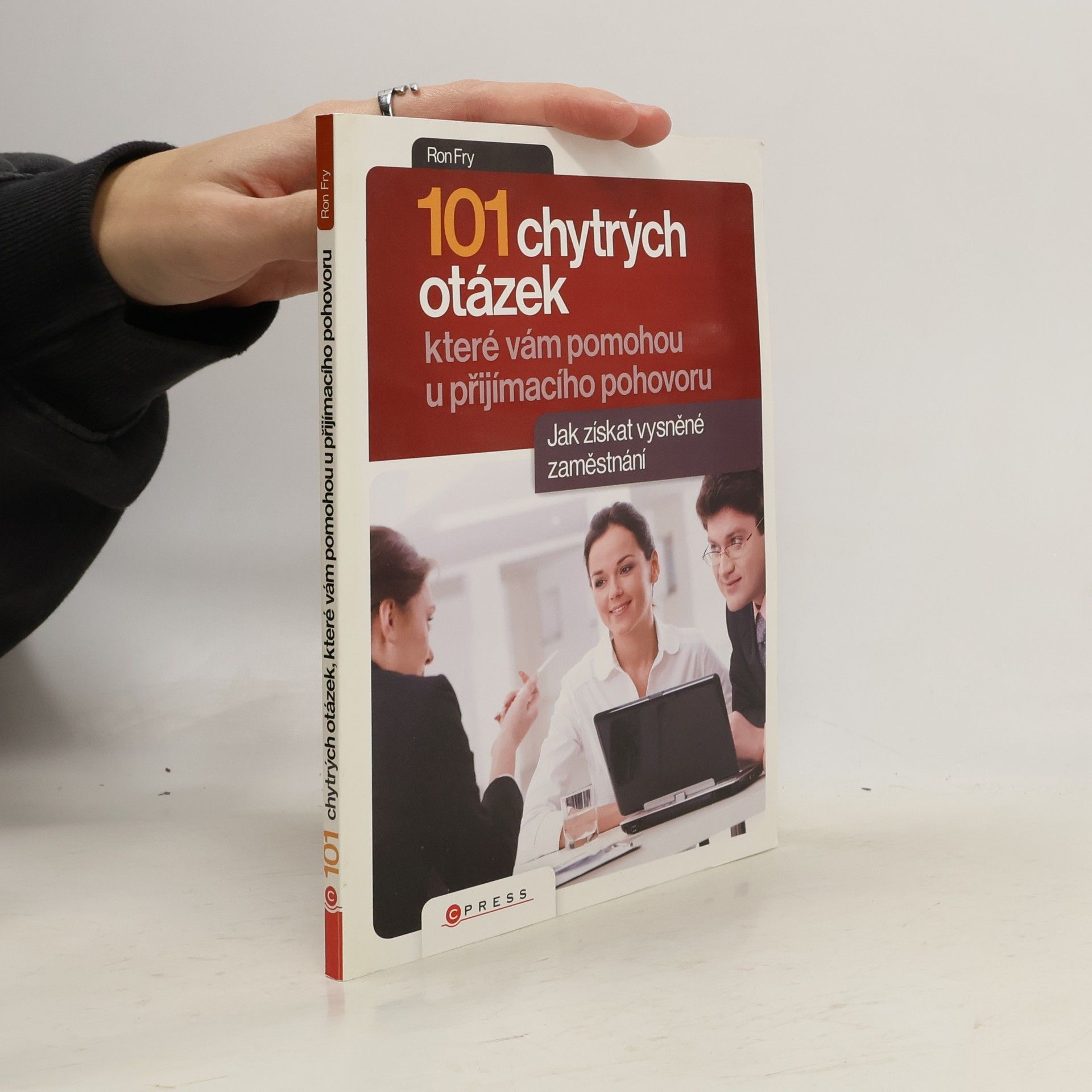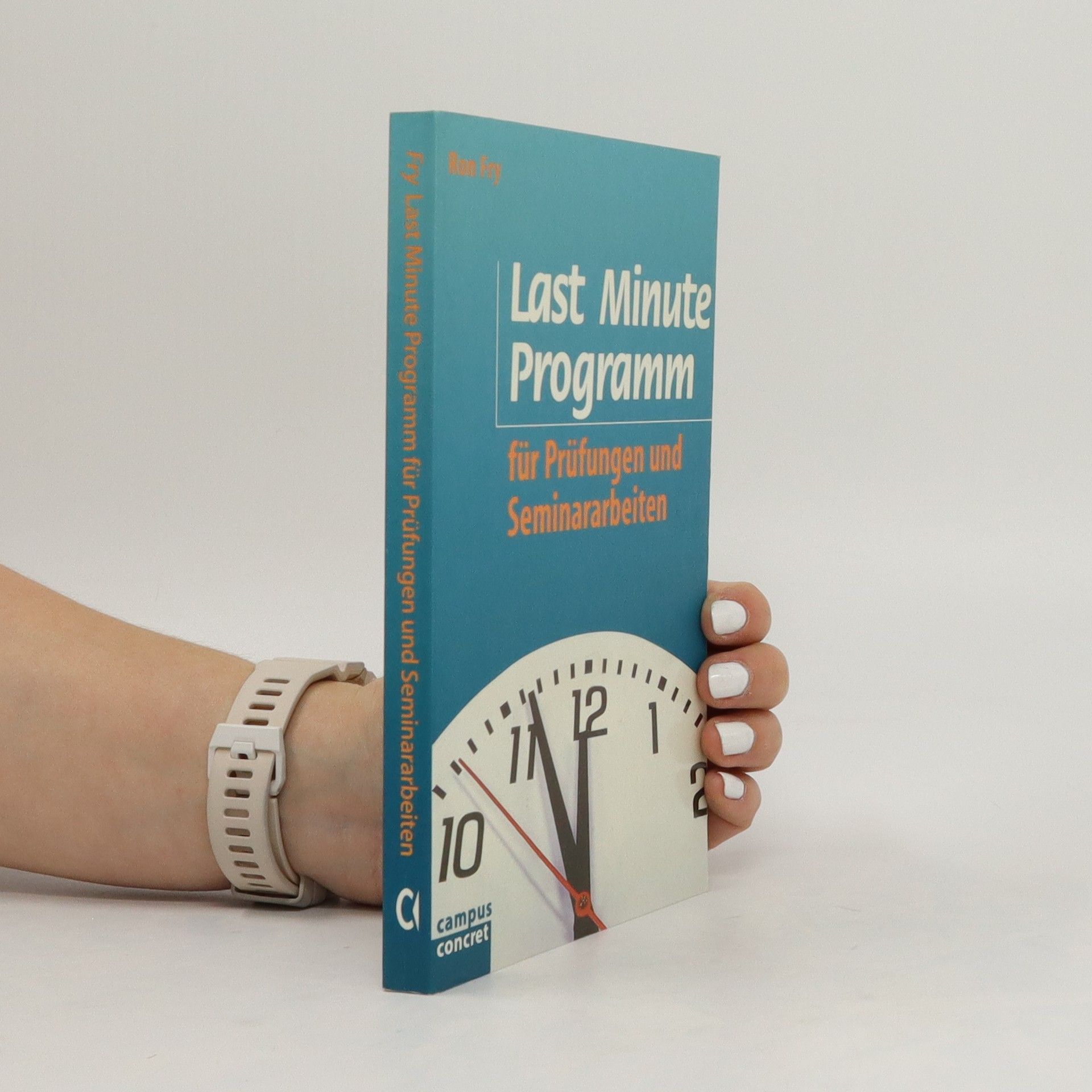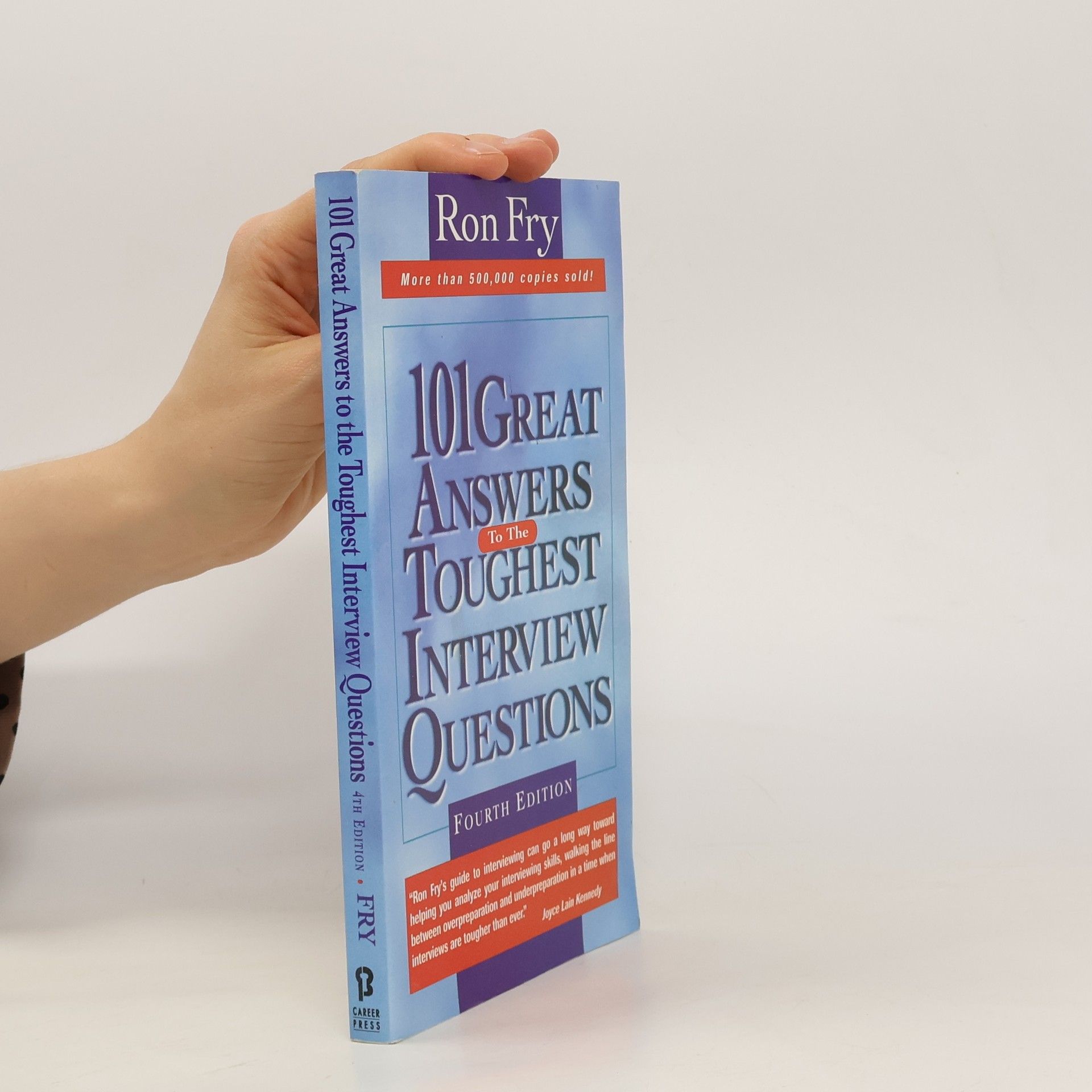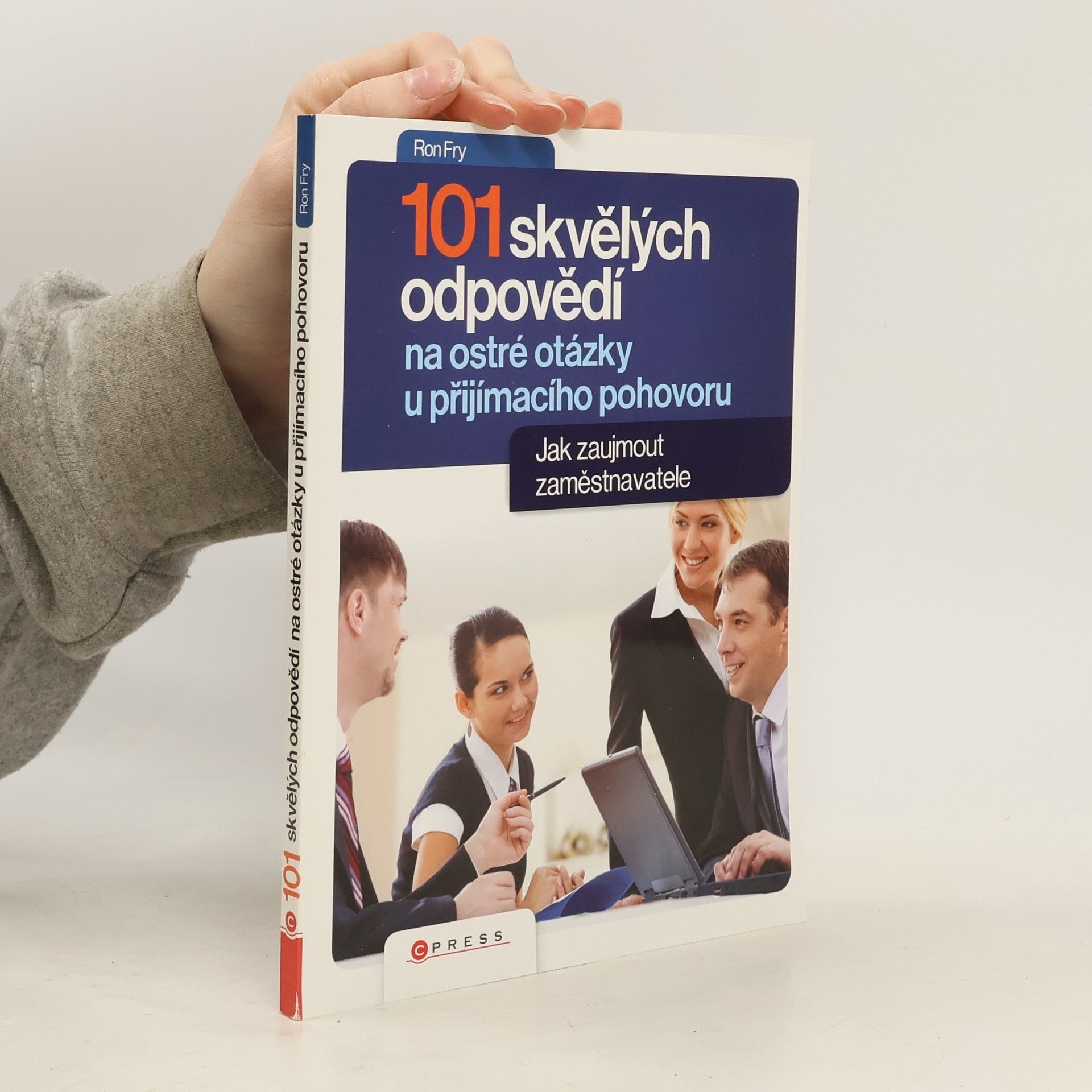Explains how to prepare for a job interview, suggests ways to answer frequently asked questions, and lists the rights of the interviewee
Ronald W. Fry Books
This author's military experience, particularly as a Special Forces team leader in Afghanistan, deeply informs their writing. Their service provided unique insights into unconventional warfare, shaping a perspective that emphasizes lessons learned from challenging missions. This background fuels a narrative voice grounded in real-world strategy and the human dynamics of conflict, offering readers a compelling look at leadership under pressure.







Ron Fry's How to Study Program: Improve Your Memory
- 96 pages
- 4 hours of reading
"Learn the essential principles of memory to help you increase your ability to retain what you read, perform better on tests, or just remember where you last put your car keys. This revised and updated edition identifies different types of memory and presents the latest techniques and proven formulas that can boost memory power."
Program, kt�ry pom�gł milionom uczni�w i student�w uczyć się mądrze i skutecznie.Jak się uczyć przedstawia rewolucyjny system nauki bogato ilustrowany przykładami - dzięki niemu wszyscy, kt�rzy chcą zdobywać wiedzę, poradzą sobie na każdym etapie kształcenia.Jeśli jesteś uczniem starszych klas szkoły podstawowej, gimnazjum, liceum/technikum. Jeśli jesteś studentem. Jeśli starasz się o stypendium lub chcesz podjąć naukę za granicą. Jeśli po latach przerwy chcesz wr�cić do nauki ta książka jest dla ciebie!Dzięki niej poznasz dogłębnie podstawowe elementy procesu uczenia się - czyli czytanie, pisanie, zarządzanie czasem, pamięć i umiejętność zdawania test�w i egzamin�w - po to, żeby niczego nie przegapić w procesie zdobywania wiedzy. Znajdziesz tu wskaz�wki, jak najlepiej przygotować sobie warunki sprzyjające nauce, jak wyr�żniać się w klasie czy grupie, jak prowadzić poszukiwania online i wiele innych.Jak się uczyć:- Pomaga uczniom i studentom w każdym wieku - od szkoły podstawowej aż do uzyskania dyplomu, nawet tym, kt�rzy po długiej przerwie wracają do nauki.- Wpaja umiejętności, kt�re będą przydatne r�wnież poza szkołą czy uczelnią i w p�źniejszym życiu.- Zawiera wskaz�wki, jak pomagać w nauce młodszym dzieciom, zwalczać zmęczenie i znudzenie w trakcie nauki, najwięcej skorzystać z zajęć klasowych i wiele innych.
Naučte se studovat
- 173 pages
- 7 hours of reading
Správné postupy při organizaci vlastního studia a času, rychlé čtení, používání knihovny a počítače, psaní kompozic a příprava ke zkouškám. Příručka je vhodná pro studenty středních a vysokých škol, jejich rodiče, výchovné poradce a všechny zájemce o efektivně vynaložený čas při studiu.
Tato publikace vyzbrojí zájemce o nové zaměstnání na jakýkoliv pohovor a také na nejnepříjemnějšího tazatele. Kniha nabízí účinné otázky, které budou fungovat bez ohledu na uchazečův věk, zkušenosti nebo cíle. Dobře položené uchazečovy otázky přesvědčí zaměstnavatele, že máte o nabízenou pozici opravdový zájem. Naučíte se: - JAK se ptát - KDY se ptát - JAKÝ typ odpovědi očekávat
101 skvělých odpovědí na ostré otázky při přijímacím pohovoru
- 152 pages
- 6 hours of reading
Tato publikace společně s další knihou Rona Frye 101 chytrých otázek, které vám pomohou u přijímacího pohovoru' vyzbrojí zájemce o nové zaměstnání na jakýkoliv pohovor a tazatele. Kniha poskytuje účinné odpovědi, které uspokojí i nejnáročnějšího tazatele. Chytře formulované odpovědi přesvědčí zaměstnavatele, že máte o nabízenou pozici opravdový zájem a jste nejvhodnějším uchazečem.
